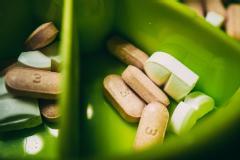Core Concepts: Start with the fundamental principles of pharmaceutical technology, including dosage forms, drug delivery systems, and pharmacokinetics. Drug Development Process: Cover the stages of drug development from discovery to market approval, emphasizing the role of pharmaceutical technology in formulation design and optimization. Formulation Science: Dive into the science behind pharmaceutical formulations, including the selection of excipients, drug stability, and formulation techniques like granulation and coating. Drug Delivery Systems: Explore various drug delivery systems such as oral, transdermal, parenteral, and inhalation routes, discussing their advantages, limitations, and applications. Quality Assurance and Control: Discuss the importance of quality assurance and control in pharmaceutical manufacturing, including Good Manufacturing Practices (GMP) and regulatory compliance. Emerging Technologies: Introduce students to emerging trends and technologies in pharmaceutical technology, such as nanotechnology, personalized medicine, and continuous manufacturing. Case Studies: Analyze case studies of successful drug formulations or innovative drug delivery systems to illustrate real-world applications and challenges in pharmaceutical technology. Industry Insights: Invite guest speakers from the pharmaceutical industry to share their experiences and insights into pharmaceutical technology research, development, and manufacturing. Practical Demonstrations: Conduct virtual practical demonstrations or simulations to reinforce theoretical concepts and provide hands-on learning experiences. Professional Development: Offer guidance on career opportunities in pharmaceutical technology, including research, development, regulatory affairs, and quality assurance roles.






